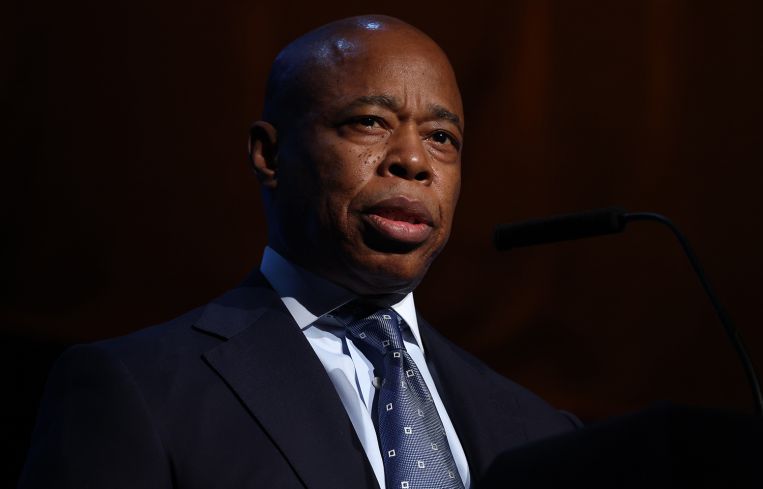Critics Unimpressed With Eric Adams’s $115B Preliminary 2026 Budget
The budget avoids spending cuts and funds eviction protection, but some haven’t been too kind to the plan
By Mark Hallum January 16, 2025 4:10 pm
reprints
Mayor Eric Adams released a $114.5 billion preliminary budget for 2026 that he said will make New York City more affordable for renters and avoid the budget cuts Adams made in previous years.
The budget plan makes eviction protection and housing vouchers a top priority and allocates $2.2 million for a rental subsidy program that will work with landlords, real estate agents and property managers to get vacant apartments filled, Adams announced Thursday afternoon.
However, the city is still short on funding the plan by about $4.2 billion.
“Our administration set the table for success by saving billions in taxpayer dollars, and now we are able to ensure the continuity of critical programs, as well as make the new, strategic investments that will move our city forward and improve quality of life for all New Yorkers without cutting services, laying off city employees, or raising taxes by a single penny,” Adams said in a statement.
The proposed budget sets aside $325 million for the City Fighting Homelessness and Eviction Prevention Supplement voucher program, $64.2 million for supportive housing and $2.2 million for the Mayor’s Office Public Engagement Unit (PEU) and Home Support Unit. Adams said his intention is to make the five boroughs the “best place to raise a family.”
New York City Comptroller Brad Lander, who is one of the myriad of candidates running against Adams in the upcoming mayoral election, saw the latest budget proposal as little more than an overcorrection for past mistakes.
“Perhaps the biggest gimmick here is that $2.4 billion of the $2.7 billion that the mayor is claiming in savings is merely correcting for his past overbudgeting of asylum-seeker costs,” Lander said in a statement. “And he is neglecting to scale up this city’s very small ‘housing first’ pilot … preferring to stick with the ‘housing last’ models that leave people with serious mental illness falling through the cracks.”
Fiscal year 2025, which ends in June, was underfunded by about $700 million due to an added $2.5 billion in spending in the middle of the year, which the Citizens Budget Commission attributes to programs that were initially underfunded. The latest budget proposal continues that habit.
“The administration should break its severe underbudgeting habit and provide credible spending estimates,” CBC President Andrew Rein said in a statement. “Hard choices and better management are needed to improve New Yorkers’ quality of life. If the city’s leaders prioritize programs that work, shrink those that don’t, and improve the quality and efficiency of the government’s operations, New Yorkers will get what they pay for and need.”
The mayor’s release of his budget kicks off negotiations between his administration and the New York City Council. The council will approve a final version, preferably before July 1, 2025, when the new fiscal year begins.
Mark Hallum can be reached at mhallum@commercialobserver.com.



